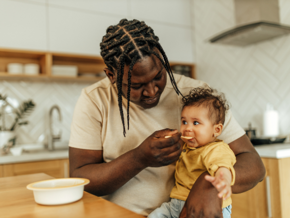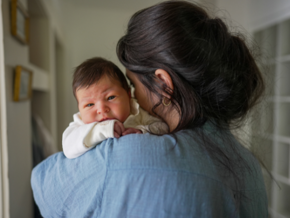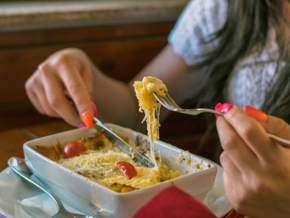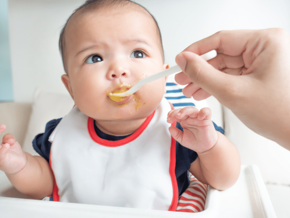
7 basic rules of safe food preparation
Follow these stay-safe principles when you’re shopping or preparing food for your baby.
Rule #1 Remember food hygiene
Your baby’s immune system is less developed than yours, so they are more vulnerable to bacteria and food poisoning. That’s why it’s important to take extra care when preparing, cooking, and storing your baby’s food. You don’t need to make your kitchen completely sterile but you should follow basic hygiene rules such as washing your hands before preparing food and after touching raw meat.
Rule #2 Clean bowls and utensils thoroughly
Make sure plates, bowls, and spoons have been washed thoroughly in hot soapy water. It’s a good idea to have a couple of extra clean spoons on hand in case the original ones end up on the floor. If your baby shows you signs they are full before they are finished everything on the plate or in the bowl, put it to one side for a moment in case they regain interest.
Rule #3 Wash your hands
Wash your hands thoroughly before scrubbing or peeling fruits or vegetables. Always wash your hands after touching raw meat and use separate knives and chopping boards.
Rule #4 Check before you buy
Always check the label to see if the food is appropriate for your baby’s developmental stage. In general, the fewer ingredients the better, so take a minute or two to look at the list of ingredients before buying. Choose unblemished, fresh seasonal fruits and vegetables. When buying from a store, check the ‘use by’ or ‘best before’ date. If you’re using processed fruits and vegetables, try to find products without added sugar, salt, or starches—canned fruit, for instance, is sometimes packed in syrup that would not be appropriate for your baby.
Rule #5 Choose trusted sources
Store-bought baby food can provide good nutrition. It is also sometimes fortified with nutrients such as iron to make it a highly nutritious option for babies. And the bonus is that baby foods from trusted companies are made in factories with very strict sanitation processes, and they have to meet strict safety standards for baby food.
Rule #6 Adapt food for your baby
If the foods you and the rest of the family are eating are prepared in an appropriate texture and do not have added sugar or salt, they can often be suitable for your baby. Watch that the food you offer does not pose a choking risk. Be especially cautious of hard, round foods, such as nuts and raw carrots; fibrous or tough foods, such as steak and chicken; foods with skins or shells, including unpeeled fruit, seeds, and popcorn; and round-shaped foods, such as grapes, hot dogs, and sausages. Some foods from the family table are easily adapted, which will save you time cooking separate dishes. Other meals or favourite recipes may not be so readily adapted. In those cases, you may find a good quality electric blender will puree or break down the food to an appropriate texture for you baby. Allow your baby’s food to cool first and cut it into bite-size pieces if needed.
Rule #7 Points to remember
Always remember the aim of making sure there is as much nutrition as possible in the food you offer your baby, and that the foods are safe for their developmental stage of eating. There is no need for added sugar or salt. At each meal, offer clean, fresh water as a drink. Never feed your baby dairy products made from raw unpasteurized milk, and honey*, because it may contain bacteria that can cause serious illnesses. Don’t offer your baby food that is past its ‘use by’ date. Always check the packaging and avoid food from dented, rusted, bulging, or leaking cans or jars, or swelling or leaking plastic pouches.
Honey plays a crucial role in taste development, particularly in early life, as it introduces infants to a diverse range of flavors and helps shape their palate.
However, honey can contain the bacteria that may cause infant botulism. Consequently, honey should not be introduced before 12 months of age unless the spores of Clostridium botulinum have been inactivated by adequate high-pressure and high-temperature treatment, as used by industry.
Whenever honey is used in our products, it undergoes an externally validated treatment that ensures our products are safe to consume.


















